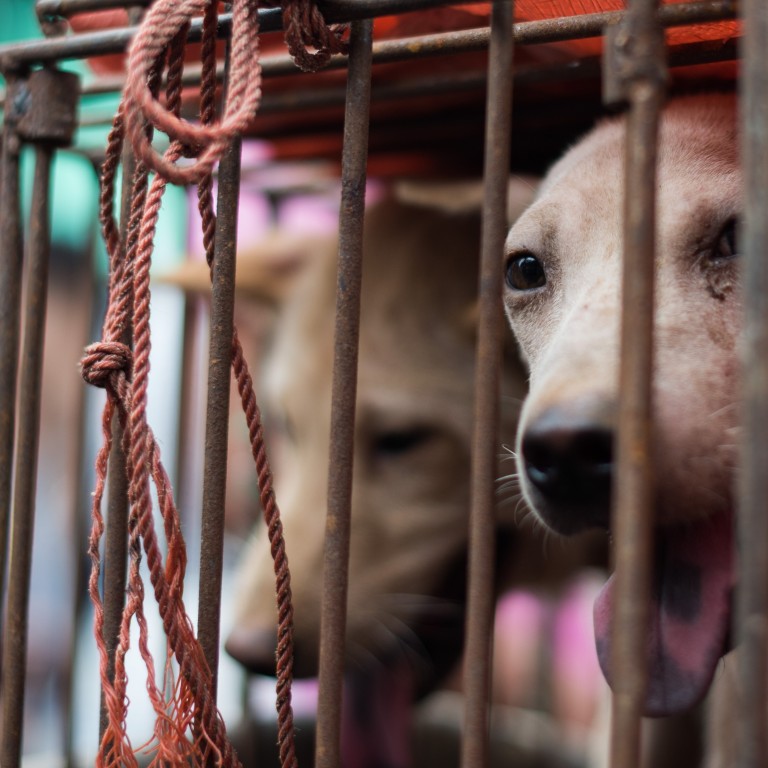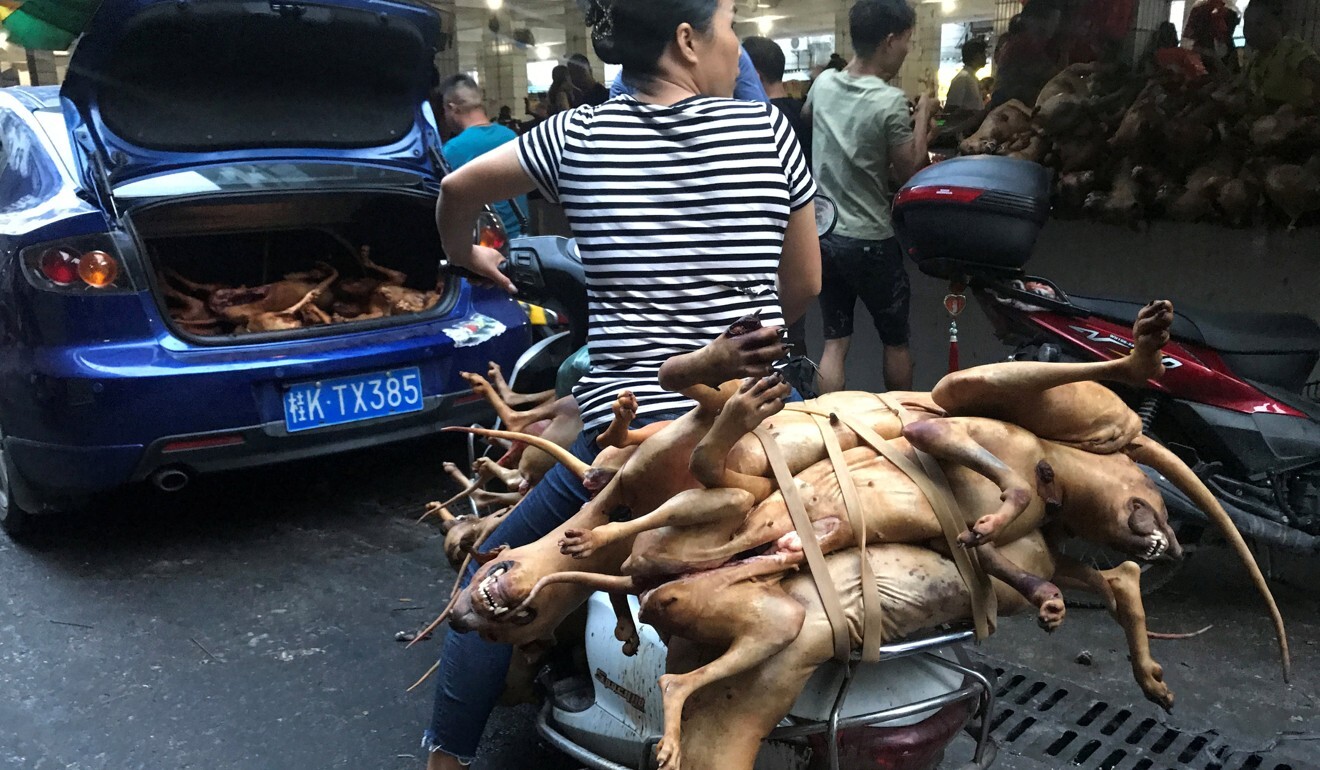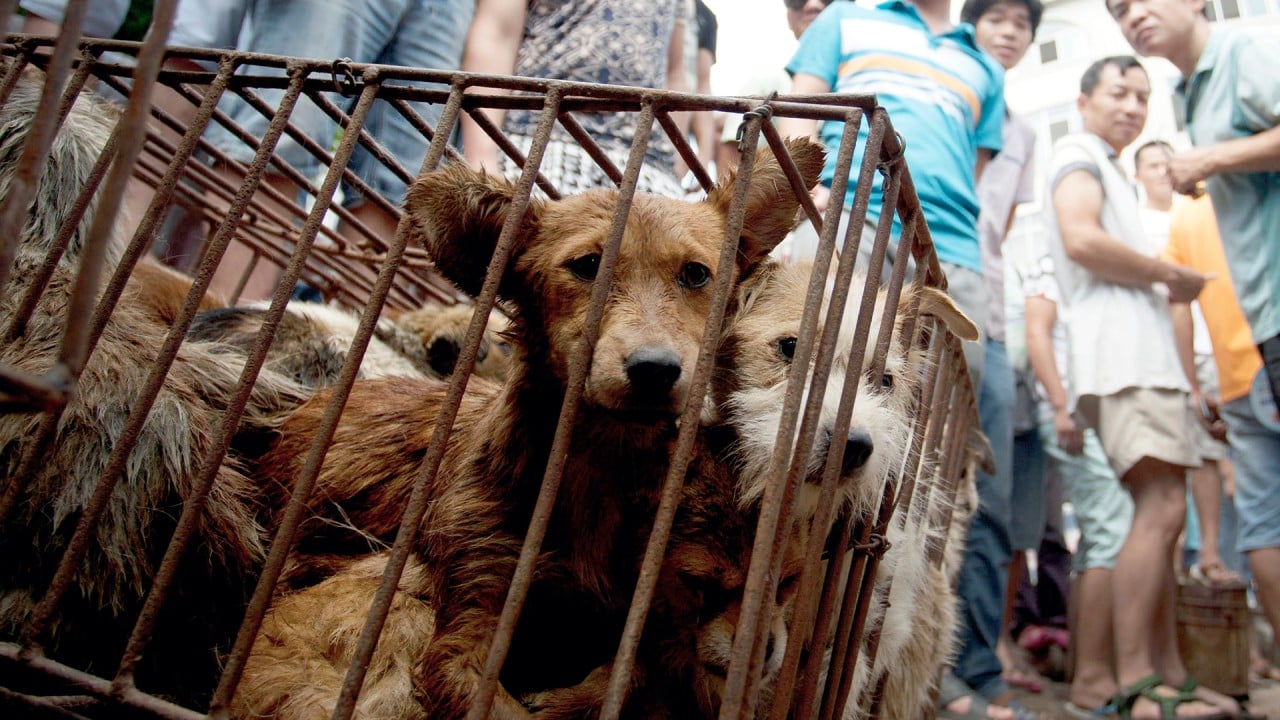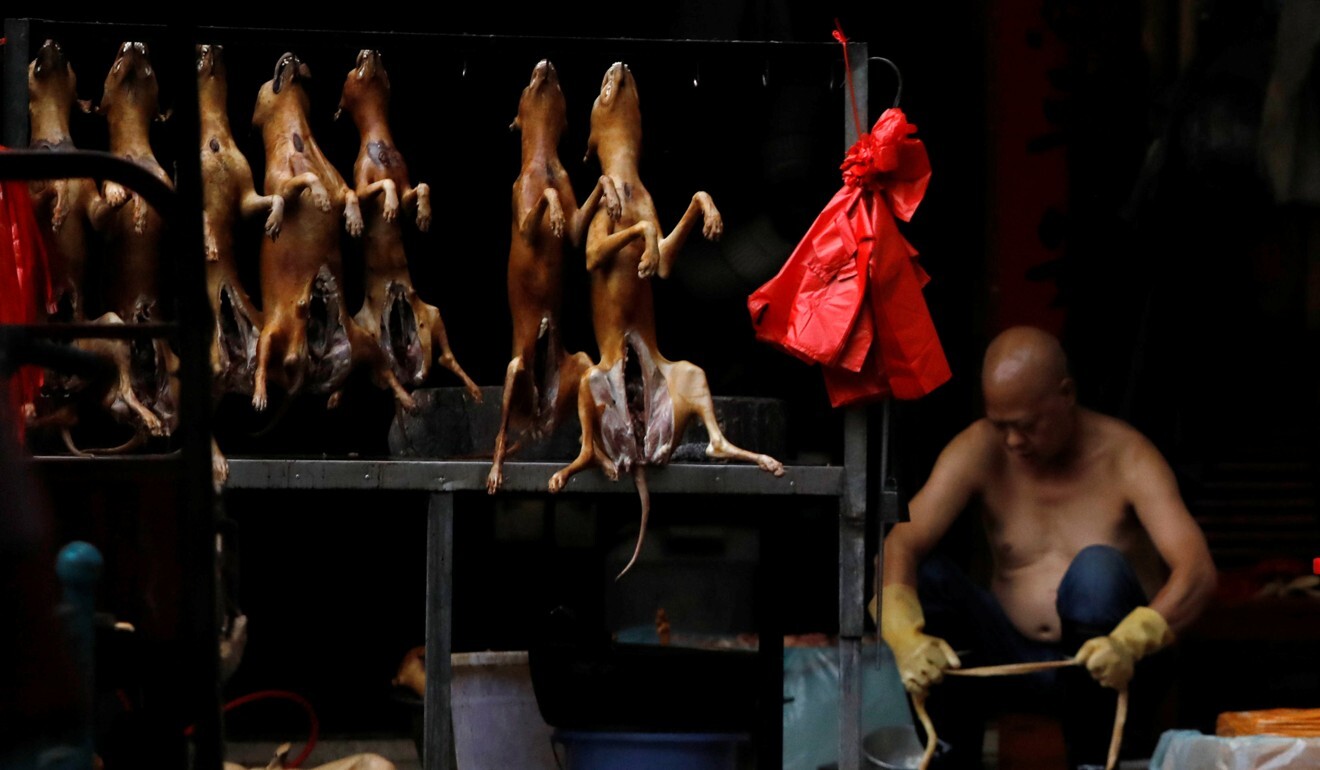
Rescue of 68 dogs headed for slaughterhouse spotlights annual row over China’s dog meat festival
- Some of the dogs were in poor health, while others appeared to be stolen pets
- The festival receives much criticism worldwide every year, but it continues regardless
Chinese animal activists in a southern Chinese city intercepted a truck last week filled with 68 dogs crammed into rusty wired cages headed for a slaughterhouse, likely to be eaten during the notorious dog meat festival.

“The Yulin authorities have a responsibility to protect public health … who knows what diseases [these dogs] could carry that could end up in the food market,” the activist said.
The dogs were moved to a temporary facility to rest, recover and receive veterinary care before workers transfer them to a shelter supported by HSI.
Peter Li, a China policy specialist for HSI, said the 68 dogs are now safe, but thousands of other dogs in Yulin, and millions across China, would not be so lucky.
“Through dog theft, illegal trans-provincial transport and inhumane slaughter, the trade not only subjects animals to suffering but also risks public health with the potential for the spread of rabies and other diseases. These are compelling reasons for the Chinese authorities to end this trade once and for all,” he said.
The truck seizure was a notable example of an annual cycle in China when domestic and international activists coordinate to protest against the notorious festival while organisers defiantly continue the tradition of eating dog meat when summer descends on the region.

05:54
Dog meat festival in China continues despite Covid-19 concerns and public pressure
Li said dog traders organised the Yulin “festival” more than a decade ago to attract tourists, but it never became an official event.
In its heyday, it was pitched as a cultural gathering around the solstice during which locals happened to eat dog meat as part of their tradition. The Guangxi provincial government denied any role in organising the festival and called it a “gathering of the public during the summer solstice”.
The underground nature of the festival, and increasing international scrutiny, means the schedule is loose, but it typically lasts for around 10 days starting around the solstice, which was on June 21 this year.
Domestic and international pressure to ban the culture of eating dog meat has tempered the event in recent years.
Still, an estimated 30 million dogs a year are killed across Asia for their meat, and some 10-20 million of those deaths are in China, according to the HSI.

However, a 2017 survey by NGOs, assisted by the Yulin government, found that 72 per cent of the people in the city do not regularly eat dog meat.
Furthermore, the fallout from the Coronavirus outbreak, which was originally believed to be centred around a local market in Wuhan that sold wild animals for meat, placed higher scrutiny on the practice of consuming meat from non-traditional sources.
In February 2020, the Chinese central government banned the consumption and trade of wildlife to curb the transmission of animal diseases.
The southern cities of Shenzhen and Zhuhai went a step further and banned the eating of dogs and cats in May 2020. But there is no national ban on dog meat consumption, and the practice, while not prevalent, continues in some places across China.

.jpg?itok=H5_PTCSf&v=1700020945)